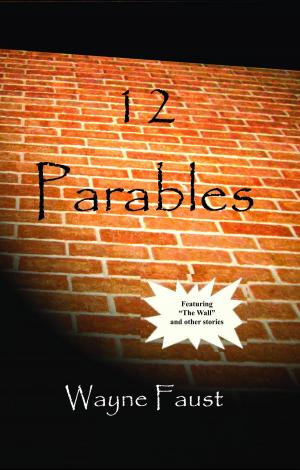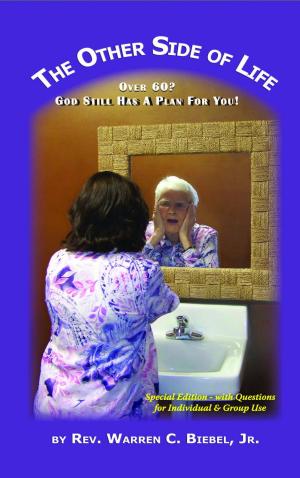Grandma, Is That You In My Closet?
Night Terrors, Shadows, Voices, Visitations, Secret Friends
Nonfiction, Religion & Spirituality, Theology, Christianity| Author: | Dan Langenfeld | ISBN: | 9781939267115 |
| Publisher: | Healthy Life Press | Publication: | April 21, 2016 |
| Imprint: | Peak Publishing | Language: | English |
| Author: | Dan Langenfeld |
| ISBN: | 9781939267115 |
| Publisher: | Healthy Life Press |
| Publication: | April 21, 2016 |
| Imprint: | Peak Publishing |
| Language: | English |
Since more than two-thirds of Americans believe in angels, these two questions deserve answers:
1. What are good angels doing day-to-day?
2: What are fallen angels doing day-to-day?
Typical answers to Question 1 include, “guarding us,” “guiding us,” “blessing us,” and so forth.
Question 2 will often draw a blank stare and no answer, or “I don’t know.”
THIS BOOK ANSWERS QUESTION 2 with carefully researched data based on the author's personal experiences, and more than 400 interviews. For example: Four-year-old Aaron told his parents that a secret friend named “Sherry” had been visiting and talking to him in his room at night. At first Sherry had invited Aaron to “come out and play.” But more recently Sherry had been telling Aaron to do bad things to himself. “What kind of things?” the boy’s parents asked. “To kill myself,” Aaron replied.
The parents decided to leave an audio recorder on Aaron’s dresser. The very first night’s results were chilling. Moments after the recorder was activated and the child was the only human who remained the room, something started talking to Aaron. Though the words were not clear, but based on what Aaron had already revealed about his secret friend, the parents decided to hide all of the kitchen knives in their own bedroom, because they believed the spirit was telling Aaron to kill himself. The next morning, Aaron came downstairs and said, “I know you hid the knives in your bedroom.” Steve said, “How did you know where we hid them?” Aaron replied to them, “‘cause Sherry told me.”
---
This story from this book is one of hundreds like it. Some are less dramatic; some are more so. But none are made up, and none is exaggerated, which is one thing that makes this book unique. Yes, hype sells and plenty of that can be found on TV, in movies, and in other books on the paranormal. By contrast, "Grandma, Is That You in My Closet?" is a down-to-earth, lay-level examination of ghosts, secret friends, visitations, apparitions, demonic oppression, night terrors, hauntings, and “things that go bump in the night.”
--
This book dispels many myths about the occult and paranormal, including:
• “Good” people need not worry about evil spirits
• Houses can be haunted
• Secret friends are usually imaginary
• Automatic writing is just another parlor trick
• A Ouija board is a harmless form of entertainment
• Sleep paralysis is just a medical condition
• Paranormal activity is random
• Ghosts are spirits of deceased humans trapped in this world
• Aliens and UFO’s are real extra-terrestrial entities
• You can “dabble” in the occult and not get hurt.
Since more than two-thirds of Americans believe in angels, these two questions deserve answers:
1. What are good angels doing day-to-day?
2: What are fallen angels doing day-to-day?
Typical answers to Question 1 include, “guarding us,” “guiding us,” “blessing us,” and so forth.
Question 2 will often draw a blank stare and no answer, or “I don’t know.”
THIS BOOK ANSWERS QUESTION 2 with carefully researched data based on the author's personal experiences, and more than 400 interviews. For example: Four-year-old Aaron told his parents that a secret friend named “Sherry” had been visiting and talking to him in his room at night. At first Sherry had invited Aaron to “come out and play.” But more recently Sherry had been telling Aaron to do bad things to himself. “What kind of things?” the boy’s parents asked. “To kill myself,” Aaron replied.
The parents decided to leave an audio recorder on Aaron’s dresser. The very first night’s results were chilling. Moments after the recorder was activated and the child was the only human who remained the room, something started talking to Aaron. Though the words were not clear, but based on what Aaron had already revealed about his secret friend, the parents decided to hide all of the kitchen knives in their own bedroom, because they believed the spirit was telling Aaron to kill himself. The next morning, Aaron came downstairs and said, “I know you hid the knives in your bedroom.” Steve said, “How did you know where we hid them?” Aaron replied to them, “‘cause Sherry told me.”
---
This story from this book is one of hundreds like it. Some are less dramatic; some are more so. But none are made up, and none is exaggerated, which is one thing that makes this book unique. Yes, hype sells and plenty of that can be found on TV, in movies, and in other books on the paranormal. By contrast, "Grandma, Is That You in My Closet?" is a down-to-earth, lay-level examination of ghosts, secret friends, visitations, apparitions, demonic oppression, night terrors, hauntings, and “things that go bump in the night.”
--
This book dispels many myths about the occult and paranormal, including:
• “Good” people need not worry about evil spirits
• Houses can be haunted
• Secret friends are usually imaginary
• Automatic writing is just another parlor trick
• A Ouija board is a harmless form of entertainment
• Sleep paralysis is just a medical condition
• Paranormal activity is random
• Ghosts are spirits of deceased humans trapped in this world
• Aliens and UFO’s are real extra-terrestrial entities
• You can “dabble” in the occult and not get hurt.















